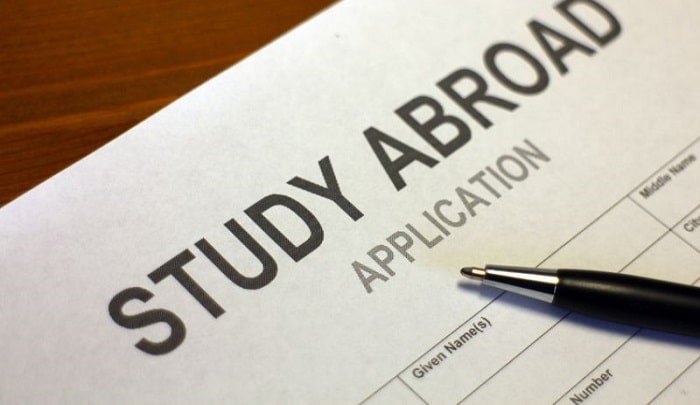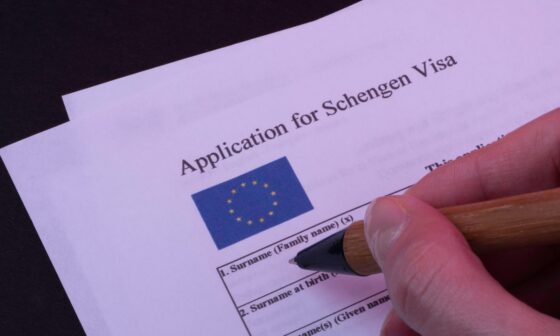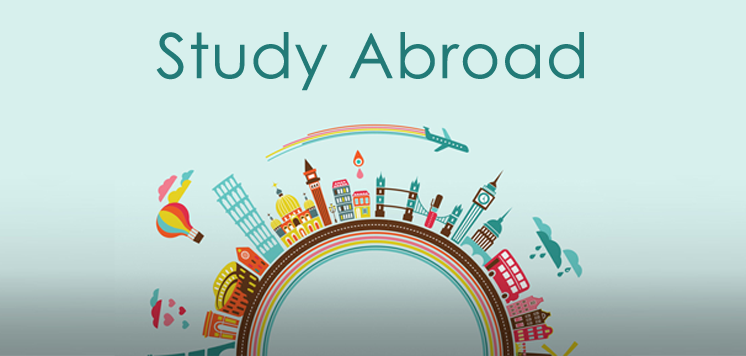When I initially pondered applying to study abroad, I was filled with both excitement and fear. I knew from the start that studying abroad would be a life-changing experience. The challenge was determining how to make it happen. Like many aspiring overseas students, I spent countless hours studying and gathering information. What I discovered along the way not only streamlined the process but also revealed chances and advice that most websites miss. Here, I’ll share my experience and assist you to apply to study abroad.
Key Steps to Apply for Study Abroad Programs
#1. Research and select your program
Choosing the correct program is critical. According to an Institute of International Education poll, students who conduct thorough research on their programs are 20% more likely to have a pleasant study abroad experience (IIE, 2020). Look beyond the rankings to considerations like curriculum, faculty, campus culture, and location.
I chose my program because of its unique curriculum and the ability to collaborate with prominent academics in my profession. This decision was critical in influencing my academic and professional development.
#2. Understanding the Admission Requirements
Admission requirements differ by institution and country. Academic transcripts, letters of recommendation, a statement of intent, and results on standardized tests are all common requirements. However, certain programs may demand a portfolio or an interview.
For my application, I needed to submit a portfolio of my prior work. This requirement was not prominently noted on the program’s webpage, and I only learned it after a thorough talk with the admissions office.
#3. Prepare your documents
Gathering and organizing your documentation can take time, but it is necessary for a successful application procedure. Ensure that your transcripts are translated and validated, if necessary. Request recommendation letters in advance and present your referees with detailed information about your accomplishments and ambitions.
I devised a checklist to keep track of my documents. This organizational tool was quite useful in ensuring that I completed all requirements and deadlines.
#4. Leverage Your Network
Reaching out to alumni or current students can reveal exclusive information that is not available online. They can provide insight into the application process, school life, and potential problems.
According to the Higher Education Research Institute, 85% of students who contacted alumni valued their guidance in developing their application strategy (HERI, 2021).
Connecting with an alumnus of my selected program provided me with practical guidance on how to modify my statement of purpose to highlight my skills while also aligning with the program’s principles.
Advertisements
#5. Financial planning and scholarships
Financing your education is crucial. Look for scholarships, fellowships, and assistantships that can help with financial pressures. Many websites mention common scholarships, but there are often lesser-known options accessible through local organizations or academic departments.
Over half of international students rely on scholarships to pay for their studies abroad (OECD, 2021).
I learned of a local scholarship through a community organization that was not included in major scholarship databases. This grant considerably decreased my college fees.
Use a Template to Streamline Your Application
To make the application process easier, I recommend using a Study Abroad Application Template. This template can help you manage your paperwork, stay on track with deadlines, and verify that all standards are met. It has sections for each needed document, deadlines, and details on the special requirements of various programs.
#6. Write a compelling statement of purpose
Your statement of purpose (SOP) is an opportunity to highlight your aims, achievements, and enthusiasm. Be detailed about why you chose the program and how it fits into your career goals. Personal tales and clear, concise wording can help your SOP stand out.
In my SOP, I discussed a research project I worked on and how it piqued my interest in pursuing additional studies in my profession. This personal touch impressed the admissions committee.
Advertisements
#7. Prepare for interviews
Certain programs may need an interview. Consider this an opportunity to demonstrate your enthusiasm and preparedness. Research popular interview questions and practice your answers.
During the interview, I was questioned about my long-term professional ambitions. I had prepared a lengthy response that linked my objectives to the program’s strengths, which impressed the interviewer.
Applying To a Bachelor’s Program Abroad
To be accepted into a bachelor’s program, you must demonstrate an interest in the subject you wish to study as well as academic ability for the course you are applying for.
Entry requirements differ between institutions and countries; therefore, it is always wise to familiarize yourself with them first. To have the best chance of being accepted, you must meet your selected institution’s grade standards and maybe submit confirmation of your language skills.
Applying to many universities increases your chances of success. However, you may be required to pay an application fee for each program you apply for.
You will also be required to produce supporting evidence. The files requested will vary for each university, but here’s a summary of what you might need:
- Secondary education qualifications and transcripts.
- References/Letter of recommendation
- Essay / Personal Statement
- English Language Certification
- Admissions Test Results
- Passport/ID photographs
Applying to a Master’s Program Abroad
Master’s applications typically require a lot of information about your educational background, particularly your undergraduate qualifications. You may need to submit the following papers with your application:
- University results with module/class split.
- References/Letter of recommendation
- Essay / Personal Statement
- English Language Certification
- CV
- Passport/ID photographs
To be accepted into most taught or research master’s programs, you must have a bachelor’s degree that meets your university’s admission standards. Most colleges favor undergraduate degrees in relevant fields, though this is not always the case.
If you completed an English-taught undergraduate degree, you may not be required to provide a language competency test score.
Applying for a PhD Abroad
To get admitted to a PhD program, you must demonstrate your commitment to academics or a certain vocation.
A master’s degree is not usually required to study for a PhD, but you must have a significant topical understanding. Shouting about your understanding and objectives in your CV or personal statement will demonstrate that you are qualified and committed to your chosen field of study.
Find and contact a university professor whose areas of expertise correspond to your research interests. Describe the themes you’d like to investigate and see if they’d be happy to oversee your work if you were to acquire a university place. If they agree, you can utilize it to improve your application.
You may be requested to provide the following as part of your PhD application:
- University Results with Module/Class Breakdown
- References/Letters of recommendation
- Essay / Personal Statement
- English Language Certification
- CV
- Photo ID.
- Research proposal
Complete an English Language Test
Most colleges that offer English-taught programs demand that non-native speakers confirm their English competence. An English language test (ELT) is important for a variety of reasons, including:
- Academic success: Universities want to make sure you can understand the course topics, participate in discussions, and finish assignments successfully.
- Integration into campus life: Strong English skills enable you to better adapt to the university environment, participate in extracurricular activities, and form networks.
- Visa requirements: An ELT is often required to obtain a student visa.
- Work advantages: Speaking English can be quite useful in your future work, especially in international roles or global companies.
- Common tests, such as the TOEFL and IELTS, measure your hearing, speaking, reading, and writing abilities, ensuring that you are ready for the demands of academic and daily life in an English-speaking setting.
Talk To Your Parents
When preparing to study abroad, obtaining your parents’ approval is frequently a critical step. Here’s how you might approach the conversation:
- Share your findings: Explain what you’ve learned about the study abroad program, including information on the university, courses, and housing arrangements. Make sure your study is thorough and you make an informed selection.
- Recognize and address any concerns your parents may have, such as safety, cost, or academic performance. Consider factual facts and reasonable plans to resolve these problems.
- Discuss rewards and challenges: Be candid about the potential benefits, such as job prospects and personal growth, as well as the problems, such as adjusting to a new culture or managing finances.
- Financial planning: Discuss how you want to finance your study. This includes tuition, living expenses, and prospective sources of finance like scholarships or part-time employment.
- Safety and communication: Investigate safety protocols and emergency plans. Also, discuss how you want to continue regular communication.
- Seek their advice: Encourage your parents to offer their ideas and advice. Include them in the decision-making process and allow them to contribute valuable feedback.
Timeline for Study Abroad
The timeline for studying abroad is crucial; it will help you stay organized and present your work on time. Each institution’s application procedure is unique, but here are some typical stages for what you need to accomplish and when:
- Select a country and program (12–18 months in advance): Investigate countries, universities, and courses. Attend education fairs and webinars whenever feasible to gain in-depth knowledge.
- Apply for your course (10–12 months before departure): Begin the application process, keeping an eye on deadlines and gathering necessary papers such as transcripts and personal statements. Register and prepare for any tests you may need to take.
- Financial planning (9–12 months before starting studies): Apply for scholarships and grants, and begin budgeting for tuition, housing, and living expenses.
- Accept an offer (6–8 months before arrival): Accept a university offer and begin the visa application procedure, confirming all necessary documentation is in place.
- Prepare for the move (3-6 months in advance) by finding housing and arranging health insurance and vaccines.
- Pack your possessions (1-2 months ahead): Start packing and arranging trip plans.
- Upon arrival, settle into your new surroundings.
Eligibility Requirements for Studying Abroad
The basic admittance requirements for each university varies depending on country. Here’s a table with the fundamental entrance requirements for prominent nations and regions:
| Country / Region | Bachelor’s Requirements | Master’s Requirements | PhD Requirements |
| USA | High School Diploma/GRE | Bachelor’s Degree | Bachelor’s Degree |
| UK | High School Diploma | Bachelor’s Degree | Bachelor’s and Masters OR significant professional experience |
| Germany | High School Qualifications | Undergraduate Degree | Bachelors + Masters degree (or equivalent) |
| Japan | High School Diploma (12 years of formal education) | Bachelor’s Degree or equivalent | Bachelor + Masters |
| Australia | Secondary School/High School Diploma | Bachelor’s degree | Diplomas from three-four years of undergraduate study and two years of postgraduate study |
| Canada | Secondary School/High School Diploma | Bachelor’s degree | Bachelors, Masters in related field, GMAT/GRE |
| Spain | High School Diploma | Bachelor’s degree | Bachelor + Masters |
| Taiwan | High School Diploma | Bachelor’s Degree | Bachelor + Masters |
| China | High School Diploma | Bachelor’s Degree | Bachelor + Masters |
Most countries and regions have identical degree requirements, but the United States is one of the few places where you can apply for a PhD without a master’s degree. This means you can move straight from undergrad to PhD study.
Age Requirements for Study Abroad
Some countries have strict restrictions, while others don’t. What are the age requirements for studying abroad?
| Country / Region | Bachelor’s Age Requirements | Master’s Age Requirements | PhD Age Requirements |
| USA | 17+ | None | None |
| UK | 17+ | None | None |
| Germany | 17+ | None | None |
| Japan | 18+ | 18+ | 24+ |
| Australia | 18+ | 18+ | 18+ |
| Canada | 18+ | 18+ | None |
| Spain | 18+ | 18+ | None |
| Taiwan | 18+ | 18+ | 18+ |
| China | 18-30 | 18-35 | 18-40 |
In most countries and regions, as long as you match the program’s requirements, you can study abroad regardless of your age.
If you are over 45, studying abroad may be more difficult, particularly at the bachelor’s or master’s level.
What Kind of Offer Can I Receive?
After submitting your application form, you may receive one of the following offers:
- Unconditional: There are no requirements to ensure your spot on your preferred course.
- Conditional: To ensure your position, you must achieve specific prerequisites, such as academic and English language proficiency. Your specific circumstances will differ depending on your course type, subject, university, and study duration. Your offer letter will contain all of the relevant information.
What Requirements Do I Need to Meet Before Accepting My Offer?
Your offer letter will provide complete details about any restrictions you must meet, such as:
- Academic requirements.
- English language requirements.
When is the Deadline for Accepting My Offer?
This varies according to your chosen study destination.
- UK: Most UK centers can accept students right up until the course starts, but we recommend taking your spot as soon as possible to avoid losing out.
- US: To avoid missing any lessons, you must accept your place at least six weeks before the start date of your course.
- Australia: Deadlines differ depending on your nationality/citizenship, but UWA College will provide your unique deadline when you apply.
Conclusion
Applying to study abroad is a journey that provides opportunities for personal and professional development. You can effectively navigate the application process by conducting extensive research on programs, comprehending prerequisites, making diligent preparations, and leveraging your network. Remember that the key to a good application is passion, preparation, and tenacity.
What specific problems do you anticipate facing on this wonderful trip, and how will you overcome them? Share your thoughts, and let’s continue the conversation!
Related Articles
- Top International Study Scholarships In 2024-2025 (+ Application Tips)
- TOP MASTER’S DEGREE PROGRAMS TO STUDY ABROAD IN 2024-2025
- TOP STUDY ABROAD SCHOLARSHIPS IN 2024-2025
- BEST COUNTRIES TO STUDY MEDICINE IN 2024-2025
- STUDY ABROAD PROGRAMS IN 2024-2025: Costs & Requirements
References
Advertisements






